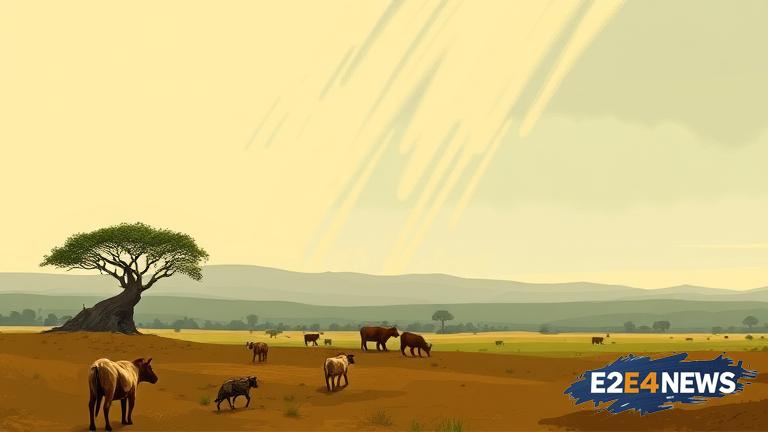The CGIAR system has launched an initiative to enhance environmental impact and policy monitoring for rangelands advocacy, aiming to promote sustainable development and improve the livelihoods of communities dependent on these ecosystems. Rangelands, which cover approximately 30% of the Earth’s land surface, are crucial for biodiversity, carbon sequestration, and food security. However, these areas are facing numerous challenges, including degradation, climate change, and inadequate policy frameworks. The CGIAR system, a global research partnership, is working to address these issues through a comprehensive approach that involves strengthening environmental impact and policy monitoring, as well as fostering partnerships with key stakeholders. By leveraging its expertise and resources, CGIAR seeks to provide evidence-based solutions to support informed decision-making and policy development. The initiative focuses on improving the management and conservation of rangelands, which will have a positive impact on the environment, livelihoods, and food security. CGIAR is collaborating with governments, civil society organizations, and private sector entities to promote sustainable rangeland management practices and advocate for policies that support the long-term health and productivity of these ecosystems. The partnership is also working to enhance the capacity of local communities to manage and conserve rangelands, recognizing the critical role they play in maintaining these ecosystems. Furthermore, CGIAR is supporting research and development activities that aim to improve the resilience of rangelands to climate change, as well as promoting the adoption of climate-smart agriculture practices. The initiative is being implemented in various regions, including Africa, Asia, and Latin America, where rangelands are a vital component of the landscape. By strengthening environmental impact and policy monitoring, CGIAR hopes to contribute to the achievement of the Sustainable Development Goals (SDGs), particularly SDG 13 (Climate Action), SDG 15 (Life on Land), and SDG 2 (Zero Hunger). The partnership is committed to ensuring that its activities are inclusive, equitable, and responsive to the needs of local communities, recognizing the importance of social and environmental sustainability. CGIAR’s work on rangelands advocacy is also aligned with the United Nations’ Decade on Ecosystem Restoration, which aims to prevent, halt, and reverse the degradation of ecosystems worldwide. The initiative has the potential to make a significant impact on the lives of millions of people who depend on rangelands for their livelihoods, as well as contribute to global efforts to address climate change and promote sustainable development. In addition to its focus on environmental impact and policy monitoring, CGIAR is also working to promote the economic benefits of sustainable rangeland management, recognizing the potential for these ecosystems to support sustainable agriculture, ecotourism, and other income-generating activities. The partnership is engaging with the private sector to explore opportunities for investment and innovation in the rangeland sector, which could help to drive sustainable development and improve the livelihoods of local communities. Overall, CGIAR’s initiative to strengthen environmental impact and policy monitoring for rangelands advocacy has the potential to make a significant contribution to the health and productivity of these ecosystems, as well as the well-being of the people who depend on them. The partnership’s comprehensive approach, which involves research, capacity building, and policy advocacy, is well-positioned to address the complex challenges facing rangelands and promote sustainable development. As the global community continues to grapple with the challenges of climate change, biodiversity loss, and sustainable development, CGIAR’s work on rangelands advocacy is an important reminder of the need for collective action and cooperation to protect and conserve these vital ecosystems. The initiative also highlights the importance of partnerships and collaboration in achieving sustainable development goals, recognizing that no single organization or sector can address these challenges alone. By working together, CGIAR and its partners hope to make a lasting impact on the health and productivity of rangelands, as well as the lives of the people who depend on them.
